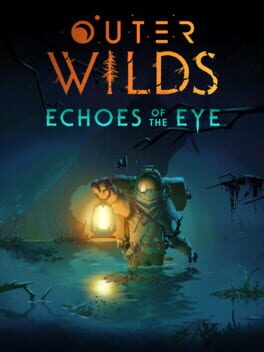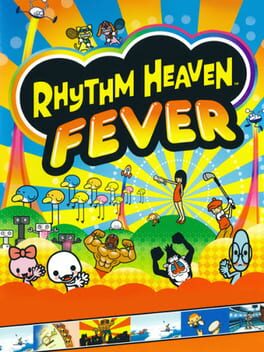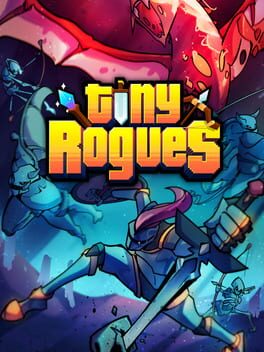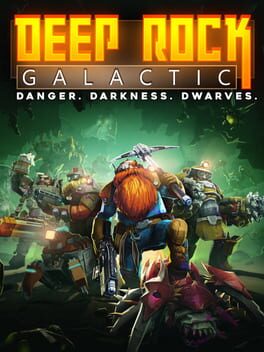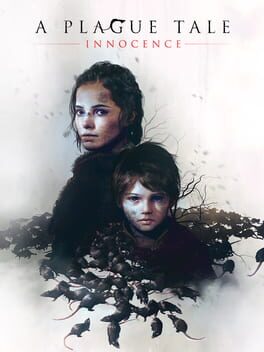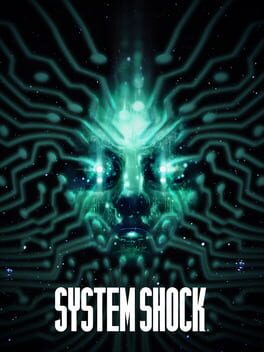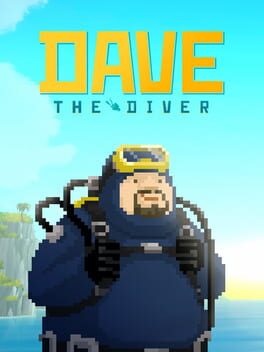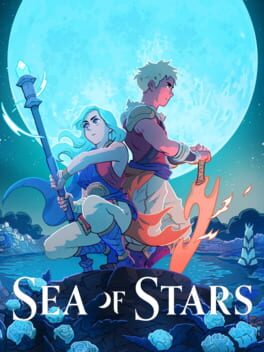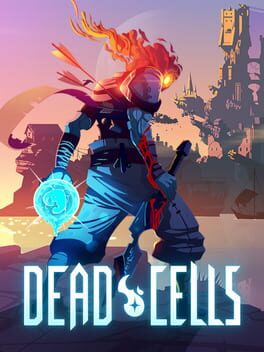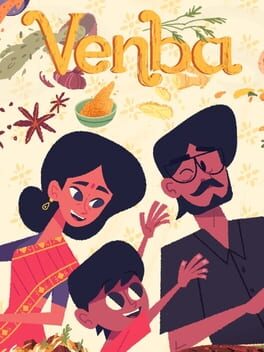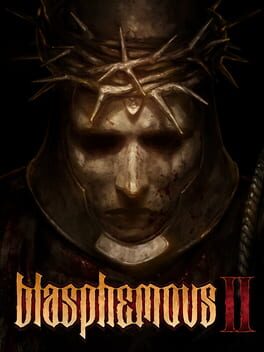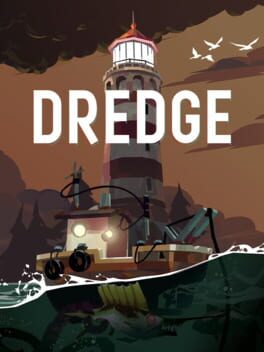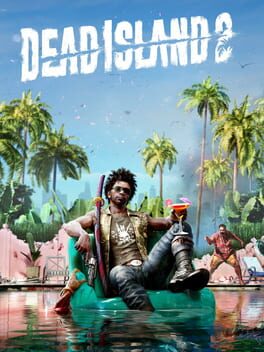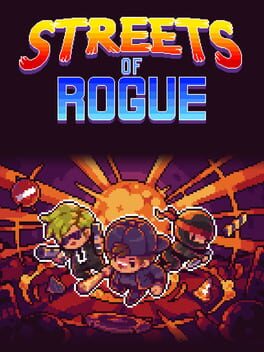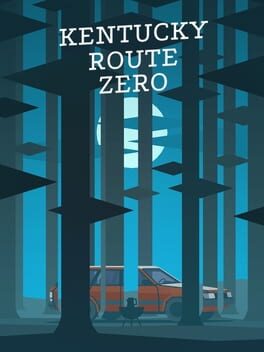ac_church
Found it much less engaging and charming than the main game. There's no sense of wonder and exploration, you're basically just solving one isolated puzzle level instead of piecing together the mystery of an entire game world.
The light-based mechanics are very nice, and the planet is a cool addition to the roster, and obviously much bigger than all the main ones, but the things that made me look past the more annoying aspects of Outer Wilds are just not there anymore. Space plays virtually no role in the DLC, you're just booking it to the same place over and over again. The mystery seemed small and inconsequential compared to the multiple intertwined mysteries of the main game.
The annoying aspects themselves, however, are still very much there. The runback in the main game could feel brutal, but you just couldn't wait to explore more of the story, so you just bite the bullet and retrace your steps for the tenth time. In the DLC the runback is many times more exhausting (go into the DLC world, swim to the location you need, enter the subworld there, runback to the place you need there), and there's just not that much that compelled me to come back.
Might return to it later, but for now it even began to tarnish the good memories I had of the main game, which is just unacceptable.
The light-based mechanics are very nice, and the planet is a cool addition to the roster, and obviously much bigger than all the main ones, but the things that made me look past the more annoying aspects of Outer Wilds are just not there anymore. Space plays virtually no role in the DLC, you're just booking it to the same place over and over again. The mystery seemed small and inconsequential compared to the multiple intertwined mysteries of the main game.
The annoying aspects themselves, however, are still very much there. The runback in the main game could feel brutal, but you just couldn't wait to explore more of the story, so you just bite the bullet and retrace your steps for the tenth time. In the DLC the runback is many times more exhausting (go into the DLC world, swim to the location you need, enter the subworld there, runback to the place you need there), and there's just not that much that compelled me to come back.
Might return to it later, but for now it even began to tarnish the good memories I had of the main game, which is just unacceptable.
2011
I'm a self-taught musician and been practicing daily for the past 10 years. I can play three instruments, and have released four albums of, dare I say, very much rhythmical music. Just as I started playing Rhythm Heaven Fever, I was going through an online course on West African polyrhythms.
Imagine the shame I brought on my family, when a monkey in the first level of a Nintendo rhythm game was repeatedly hitting my player character in the nuts with golf balls because I fucked up half of its musical cues.
The music in this game is amazing. I'm not a huge fan of Nintendo's hyper colorful aesthetic, but it works great here, and the mini-games are constantly inventive. But. The difficulty curve is straight up sociopathic. Hidetaka Miyazaki looked at the monkey watch level in the second stack and wept.
To somewhat cover my musician dignity, I can say that, from a musical point of view, Rhythm Heaven Fever just isn't very musical. Don't get me wrong, the rhythms themselves are great, there's a ton of syncopation, contrasts, all the good shit. And there's a lot of variety in musical styles. Rather, it's what game wants from the player that is not musical. You're required to hit every beat right on the money. A fraction of a second late or early, and it's counted as a failure.
In other words, the game wants you to be a sequencer, not a musician. Every instrument player worth their salt knows that the sweet spot is in playing just a skosh behind or ahead of the beat. That's what gives the performance life, makes it less robotic.
These imperfections of an individual playing style are the hardest to replicate with sampling and sequencing, and I imagine they would be just as hard to evaluate in a rhythm game. Maybe a different, more forgiving approach altogether would benefit such a game. Making it about the joy of music, rather than programming those 4s, 8s and 16s right on the head.
Imagine the shame I brought on my family, when a monkey in the first level of a Nintendo rhythm game was repeatedly hitting my player character in the nuts with golf balls because I fucked up half of its musical cues.
The music in this game is amazing. I'm not a huge fan of Nintendo's hyper colorful aesthetic, but it works great here, and the mini-games are constantly inventive. But. The difficulty curve is straight up sociopathic. Hidetaka Miyazaki looked at the monkey watch level in the second stack and wept.
To somewhat cover my musician dignity, I can say that, from a musical point of view, Rhythm Heaven Fever just isn't very musical. Don't get me wrong, the rhythms themselves are great, there's a ton of syncopation, contrasts, all the good shit. And there's a lot of variety in musical styles. Rather, it's what game wants from the player that is not musical. You're required to hit every beat right on the money. A fraction of a second late or early, and it's counted as a failure.
In other words, the game wants you to be a sequencer, not a musician. Every instrument player worth their salt knows that the sweet spot is in playing just a skosh behind or ahead of the beat. That's what gives the performance life, makes it less robotic.
These imperfections of an individual playing style are the hardest to replicate with sampling and sequencing, and I imagine they would be just as hard to evaluate in a rhythm game. Maybe a different, more forgiving approach altogether would benefit such a game. Making it about the joy of music, rather than programming those 4s, 8s and 16s right on the head.
2022
Yet another one of the somehow-legal-crack-cocaine-on-Steam-store roguelites, on par with Vampire Survivors with how good it pumps the ol' dopamine drip and eats the time allocated to your responsibilities, social life, and hygiene.
Its pool of mechanics is concise, shockingly well-balanced for a game in early access, and, as of 20 hours of game time, still producing new results every run. In sheer variety of approaches, Tiny Rogues easily beats Vampire Survivors, and gets close to such giants like Isaac and Dead Cells. The interaction between skills gained on level ups, innate character abilities (and there are so many characters), equipment, and consumables is really rich and varied, and makes planning a build a delight each time.
The tiny SNES-like action of the game is, again, shockingly satisfying, dynamic and, unlike Vampire Survivors, never lets you just kick back and enjoy the show. The first 5 levels or so are usually very breezy, but they let you focus on perfecting your build. The later levels are the real test of both the build and your skill, where the bullet hell aspect of the game comes through full force.
The only downside is that the game pretty much doesn't have any lore or story. It has a cute 8-bit aesthetic and even cuter homages to Dark Souls, but that's the extent of aesthetic engagement. It's so fun, that you don't actively notice it, but I imagine it will impact how much I remember of the game and how much I'm willing to return to it after, say, 40 hours.
Its pool of mechanics is concise, shockingly well-balanced for a game in early access, and, as of 20 hours of game time, still producing new results every run. In sheer variety of approaches, Tiny Rogues easily beats Vampire Survivors, and gets close to such giants like Isaac and Dead Cells. The interaction between skills gained on level ups, innate character abilities (and there are so many characters), equipment, and consumables is really rich and varied, and makes planning a build a delight each time.
The tiny SNES-like action of the game is, again, shockingly satisfying, dynamic and, unlike Vampire Survivors, never lets you just kick back and enjoy the show. The first 5 levels or so are usually very breezy, but they let you focus on perfecting your build. The later levels are the real test of both the build and your skill, where the bullet hell aspect of the game comes through full force.
The only downside is that the game pretty much doesn't have any lore or story. It has a cute 8-bit aesthetic and even cuter homages to Dark Souls, but that's the extent of aesthetic engagement. It's so fun, that you don't actively notice it, but I imagine it will impact how much I remember of the game and how much I'm willing to return to it after, say, 40 hours.
2018
Played it first a year ago when it was on PS Plus, and enjoyed it way more back then - got really obsessed, knocked out like 20 hours in a week. Now it's still charming, but feels a lot more shallow.
The biggest problem is that I didn't notice any significant additions, even though I tapped out of the game for over a year. All the missions, characters, items etc were exactly the same as I remember them from Jan 2022, I didn't even need any onboarding and just hopped back in. There was some seasonal content announced, but none of the missions I went on had any of it. There were a couple new types of enemies, but they didn't lend much variety to the gameplay.
Just like all of these, it's probably way more fun with friends, but since I always have to play with randos, I have to judge it on that. The community back on PS Plus was surprisingly friendly and cooperative, an outlier by a pretty wide margin compared to other multiplayer games I've played. Now on Steam I found it much more alienating: everyone was just doing their thing, it was even rare to get a celebratory "Rock and Stone" or "For Karl!" from the lads, which is, like, 60% of enjoyment from the game.
Might come back one day if by some miracle I find videogame playing friends lol.
The biggest problem is that I didn't notice any significant additions, even though I tapped out of the game for over a year. All the missions, characters, items etc were exactly the same as I remember them from Jan 2022, I didn't even need any onboarding and just hopped back in. There was some seasonal content announced, but none of the missions I went on had any of it. There were a couple new types of enemies, but they didn't lend much variety to the gameplay.
Just like all of these, it's probably way more fun with friends, but since I always have to play with randos, I have to judge it on that. The community back on PS Plus was surprisingly friendly and cooperative, an outlier by a pretty wide margin compared to other multiplayer games I've played. Now on Steam I found it much more alienating: everyone was just doing their thing, it was even rare to get a celebratory "Rock and Stone" or "For Karl!" from the lads, which is, like, 60% of enjoyment from the game.
Might come back one day if by some miracle I find videogame playing friends lol.
The game feels a bit better than "Being railroaded through a 14th century The Last of Us riff" makes it out to be, but even at a measly 11 hours it was such a slog that I couldn't see it through.
It teases you with gorgeous, bleak, gothic set pieces that you want to explore, and an intriguing dark fantasy story with a solid ground in history.
But then crushes you with the realization that none of the set pieces are exploreable, and in fact have a giant honking red line through them that you must follow. And that story? You'll have to get through hours of some of the worst designed stealth sections in video game history to see it.
At one point in the middle of the game, you go through an escape mission where an NPC tells you every 👏 goddamn👏 thing👏 you need to do - when to run and when to hide, what buttons to push, how to deal with enemies - the whole thing. This is, once again, not a tutorial, it's a level good 4 hours into the game.
It is such an early 2010s feeling game in everything but graphics, that I'm honestly shocked that it was released in 2019. This style of cinematic adventure "game" that completely neglects to develop its game elements should have stayed in that era, but somehow it's still chugging along.
It teases you with gorgeous, bleak, gothic set pieces that you want to explore, and an intriguing dark fantasy story with a solid ground in history.
But then crushes you with the realization that none of the set pieces are exploreable, and in fact have a giant honking red line through them that you must follow. And that story? You'll have to get through hours of some of the worst designed stealth sections in video game history to see it.
At one point in the middle of the game, you go through an escape mission where an NPC tells you every 👏 goddamn👏 thing👏 you need to do - when to run and when to hide, what buttons to push, how to deal with enemies - the whole thing. This is, once again, not a tutorial, it's a level good 4 hours into the game.
It is such an early 2010s feeling game in everything but graphics, that I'm honestly shocked that it was released in 2019. This style of cinematic adventure "game" that completely neglects to develop its game elements should have stayed in that era, but somehow it's still chugging along.
2023
The exploration and cheesy but awesome 80s sci-fi story is where this game shines. The flat, outdated cover shooter gunplay and constant ambushes that sap all the joy out of the game is where it faltered.
Highly enjoyed essentially walking around the pages of "Neuromancer". Early stages have a great balance of atmospheric space horror, metroidvania puzzle-solving and immersion. The design on the space station is a cyberpunk masterclass, SHODAN and her many robotic and bionic aberrations are excellent antagonists.
The deeper the game goes, the more some of the most tedious elements take over. Every shootout has one dimension - you have to lean from cover so that the stupid enemy ai shoots into the wall, while you shoot into them. If you happened to be leaning from a wrong angle, well, bad for you, because you're going to be shooting the wall and eat all the bullets instead.
Despite having many survival horror tendencies, the game doesn't offer you any alternatives to shootouts. Stealth is non-existent, the enemies always automatically know you're there. Running past them is mostly not an option - they've got perfect aim and hit like a truck.
Perhaps the worst idea in the game - and it gets used a lot - is ambushes. Every level has at least a couple, and often more, encounters where you just open a door or get off the elevator and immediately get blasted by a pack of enemies. Other times you will be just suddenly attacked from the back or from the air by motherfuckers who are somehow silent like ninjas despite being a mutated sack of flash or a bucket of bolts.
When this happens in a Souls game, it's funny, because you expect to die a lot. You take your slapstick death, pick up your souls, and do better next time. In a survival horror scenario with limited resources, it's pure sadism. Your rare and precious health items get wasted like nobody's business in situations that you have zero chance of preventing. I have never abused save scumming as much as I did in this game, and boy does it get old fast.
The final straw for me was Beta Grove. The combination of time constraint, constant ambushes, and exploration boiled down to just running in circles looking for switches was one of the least fun experiences I've had with videogames.
I'm a huge fan of everything this franchise inspired - from the more actiony version in Prey to pure exploration in SOMA - and this version had a lot of that DNA going for it. However, the gameplay eventually just got too tedious for me to bother finishing the game, even though the story was so captivating.
Highly enjoyed essentially walking around the pages of "Neuromancer". Early stages have a great balance of atmospheric space horror, metroidvania puzzle-solving and immersion. The design on the space station is a cyberpunk masterclass, SHODAN and her many robotic and bionic aberrations are excellent antagonists.
The deeper the game goes, the more some of the most tedious elements take over. Every shootout has one dimension - you have to lean from cover so that the stupid enemy ai shoots into the wall, while you shoot into them. If you happened to be leaning from a wrong angle, well, bad for you, because you're going to be shooting the wall and eat all the bullets instead.
Despite having many survival horror tendencies, the game doesn't offer you any alternatives to shootouts. Stealth is non-existent, the enemies always automatically know you're there. Running past them is mostly not an option - they've got perfect aim and hit like a truck.
Perhaps the worst idea in the game - and it gets used a lot - is ambushes. Every level has at least a couple, and often more, encounters where you just open a door or get off the elevator and immediately get blasted by a pack of enemies. Other times you will be just suddenly attacked from the back or from the air by motherfuckers who are somehow silent like ninjas despite being a mutated sack of flash or a bucket of bolts.
When this happens in a Souls game, it's funny, because you expect to die a lot. You take your slapstick death, pick up your souls, and do better next time. In a survival horror scenario with limited resources, it's pure sadism. Your rare and precious health items get wasted like nobody's business in situations that you have zero chance of preventing. I have never abused save scumming as much as I did in this game, and boy does it get old fast.
The final straw for me was Beta Grove. The combination of time constraint, constant ambushes, and exploration boiled down to just running in circles looking for switches was one of the least fun experiences I've had with videogames.
I'm a huge fan of everything this franchise inspired - from the more actiony version in Prey to pure exploration in SOMA - and this version had a lot of that DNA going for it. However, the gameplay eventually just got too tedious for me to bother finishing the game, even though the story was so captivating.
2022
A hundred mini-games in a trench coat pretending to be a job sim, Dave the Diver is a vibrant, constantly inventive delight.
The minimalistic core loop of the game - catch fish by day, sell sushi by night - doesn't stay that much "core" for longer than an hour, as you're constantly introduced to fun little new mechanics or full on mini-games. This process is exuberant, the mechanics that would make up a whole game will often appear just for one scene, where you need to crack them on short notice. A lot of these mini-games are delightful pixel-art homages to other games, and most of them work great as little sushi-like bites rather than whole meals.
By the late game, the flow of new mechanics slows down a bit, and that leaves you to realize that there's just not much depth to the core experience of Dave the Diver. The business sim is barebones, the fishing is repetitive across all biomes, there are way too many dishes you can serve which adds zero to the experience as they are just tiny pixel art icons.
But that doesn't really matter, as the game clearly goes for width, rather than depth. You get to do so many fun things in Dave the Diver that you can ignore that the job sim is not crunchy enough. And you can almost fill that giant hole that Subnautica left in your heart.
The minimalistic core loop of the game - catch fish by day, sell sushi by night - doesn't stay that much "core" for longer than an hour, as you're constantly introduced to fun little new mechanics or full on mini-games. This process is exuberant, the mechanics that would make up a whole game will often appear just for one scene, where you need to crack them on short notice. A lot of these mini-games are delightful pixel-art homages to other games, and most of them work great as little sushi-like bites rather than whole meals.
By the late game, the flow of new mechanics slows down a bit, and that leaves you to realize that there's just not much depth to the core experience of Dave the Diver. The business sim is barebones, the fishing is repetitive across all biomes, there are way too many dishes you can serve which adds zero to the experience as they are just tiny pixel art icons.
But that doesn't really matter, as the game clearly goes for width, rather than depth. You get to do so many fun things in Dave the Diver that you can ignore that the job sim is not crunchy enough. And you can almost fill that giant hole that Subnautica left in your heart.
2023
Cute, but very shallow game. It looks and sounds great, but whenever you pay more attention to anything deeper, from writing to gameplay, there's just nothing there.
I might be spoiled by Baldur's Gate 3 a bit, but for an RPG this game is extremely railroaded. I've played about 10 hours, and there was zero opportunity for exploration, RP choices, build choices, progression branches.
You can't choose where to go, because there's nowhere to go outside the main progression line. You can't choose what to do, because there are no side quests or anything worth exploring in any of the locations. You can't choose how your characters play, because on the only choice you have is what stat will gain a superficial boost on leveling up. There are no abilities, no equipment to choose from.
Even combat is railroaded to one correct strategy. You need to hit enemies with the element they are vulnerable to and break their attacks by hitting them with a combination of elements. This is the only thing the game wants you to do in combat, there are no alternative strategies or other decisions to consider.
This would be forgivable if the game railroaded you through an amazing story with characters worth sinking your time in. This is not the case. The story and the characters are the same shallow pastiche of JRPGs as everything else about the game. I quickly started skipping through dialog because of how superficial and poorly written it was, something I almost never do in RPGs.
The artists and the composer deserve the highest praise in this game, it's really a joy to look at and listen to. A shame that this cool aesthetic has no structural support whatsoever.
I might be spoiled by Baldur's Gate 3 a bit, but for an RPG this game is extremely railroaded. I've played about 10 hours, and there was zero opportunity for exploration, RP choices, build choices, progression branches.
You can't choose where to go, because there's nowhere to go outside the main progression line. You can't choose what to do, because there are no side quests or anything worth exploring in any of the locations. You can't choose how your characters play, because on the only choice you have is what stat will gain a superficial boost on leveling up. There are no abilities, no equipment to choose from.
Even combat is railroaded to one correct strategy. You need to hit enemies with the element they are vulnerable to and break their attacks by hitting them with a combination of elements. This is the only thing the game wants you to do in combat, there are no alternative strategies or other decisions to consider.
This would be forgivable if the game railroaded you through an amazing story with characters worth sinking your time in. This is not the case. The story and the characters are the same shallow pastiche of JRPGs as everything else about the game. I quickly started skipping through dialog because of how superficial and poorly written it was, something I almost never do in RPGs.
The artists and the composer deserve the highest praise in this game, it's really a joy to look at and listen to. A shame that this cool aesthetic has no structural support whatsoever.
2017
Pretty much the only game that I pick up every year or so and continuously get better at. Started the journey in 2020, barely got my first Boss Cell and thought 2BC impossible. Now 4 years later, I've finally got to 5BC. That seems impossible for now, and runs become sooo unforgiving that it's not so fun. But I guess see you in 6 months or so, Dead Cells!
2023
Beautiful art and music. Some of the most original and in-depth cooking mechanics I've seen in games. And a thoughtful story that feels part of the recent wave of indie films that reevaluate the immigrants' experiences and the constant struggle between authenticity and assimilation. And, of course, a celebration of one of the greatest cuisines in the world.
Great little vibrant experience, I only wish there was more of it! Like hours and hours more! Maybe even with actually challenging cooking puzzles that utilize the most out of the cool mechanics.
Not only called my parents, which certainly was the intended effect, but added like half a dozen things to my recipe wishlist as well. Good thing I had a lot of experience cooking Indian dishes (in fact, cooked a Chicken Madras the day I started Venba lol), I imagine this was much harder to figure out for the majority of my generation who can't cook a damn egg.
Great little vibrant experience, I only wish there was more of it! Like hours and hours more! Maybe even with actually challenging cooking puzzles that utilize the most out of the cool mechanics.
Not only called my parents, which certainly was the intended effect, but added like half a dozen things to my recipe wishlist as well. Good thing I had a lot of experience cooking Indian dishes (in fact, cooked a Chicken Madras the day I started Venba lol), I imagine this was much harder to figure out for the majority of my generation who can't cook a damn egg.
2023
The Miracle giveth and the Miracle taketh away, and as Blasphemous becomes a much better gaming experience, its worldbuilding, story and art become a bit more generic and safe.
Good things first, gameplay-wise, it's one of the best modern metroidvanias I've played.
The combat is diverse with three distinct weapon styles that you often have to switch between to get the best results - some enemies are vulnerable to the swift dodge and parry style of the daggers, some need the wide sweeping arc of the Veredicto, and you often will have to fight a mix of them in quick succession.
It's fun to experiment with the best approaches for the bosses as well, and the game makes it easy, as you just switch between different ability presets and have no penalty for committing to the build. I've relied on Veredicto for most of the game, but for the penultimate boss the daggers and the build that favors high guilt build-up came extremely handy.
The boss battles were challenging, but exactly on the right level - rewarding to study and beat, but not exhausting to the point of losing all the will to continue. Many of the enemies can be treated like mini-bosses as well - requiring you to react to their moveset rather just plowing through them with abandon.
The platforming is excellent as well, something I never expected from Blasphemous. The platforming challenges in the first game were grueling and not fun at all - the special speedrun portions were a particular nightmare. In the sequel, the platforming sections are always dynamic, smart, and don't outstay their welcome - the idea to utilize all the weapons in platforming, and sometimes requiring you to switch between all three mid-jump, is genius.
But flawed as the first part's gameplay was, the aesthetics and the worldbuilding were unique and impeccable. Something that the sequel, unfortunately, doesn't hold up.
In the first game, every enemy, boss, and NPC was a little self-contained body horror nightmare. They were all going through some kind of torture, mutilation, or mutation - an animated Hieronymus Bosch painting coming to kick your ass. There are some great designs in the sequel as well, but overall the concentration of horror is much lower. A lot of the enemies are just generic dark fantasy monsters, and the aesthetics of the bosses were a particular disappointment - it feels like more than half are just sword dudes in pointy hats.
The worldbuilding was much less unique and exciting this time around as well. It doesn't feel like the sequel added much to the Lovecraftian horror that is the Miracle or found any other fun ways to show macabre perversions of Catholicism. The idea behind Blasphemous' world is so cool and the first game did so much with it, while the sequel plays like more of a generic dark fantasy world.
Nevertheless, it was a ton of fun to play, and a lot of the worldbuilding perfection of the first game seeped into this one.
Good things first, gameplay-wise, it's one of the best modern metroidvanias I've played.
The combat is diverse with three distinct weapon styles that you often have to switch between to get the best results - some enemies are vulnerable to the swift dodge and parry style of the daggers, some need the wide sweeping arc of the Veredicto, and you often will have to fight a mix of them in quick succession.
It's fun to experiment with the best approaches for the bosses as well, and the game makes it easy, as you just switch between different ability presets and have no penalty for committing to the build. I've relied on Veredicto for most of the game, but for the penultimate boss the daggers and the build that favors high guilt build-up came extremely handy.
The boss battles were challenging, but exactly on the right level - rewarding to study and beat, but not exhausting to the point of losing all the will to continue. Many of the enemies can be treated like mini-bosses as well - requiring you to react to their moveset rather just plowing through them with abandon.
The platforming is excellent as well, something I never expected from Blasphemous. The platforming challenges in the first game were grueling and not fun at all - the special speedrun portions were a particular nightmare. In the sequel, the platforming sections are always dynamic, smart, and don't outstay their welcome - the idea to utilize all the weapons in platforming, and sometimes requiring you to switch between all three mid-jump, is genius.
But flawed as the first part's gameplay was, the aesthetics and the worldbuilding were unique and impeccable. Something that the sequel, unfortunately, doesn't hold up.
In the first game, every enemy, boss, and NPC was a little self-contained body horror nightmare. They were all going through some kind of torture, mutilation, or mutation - an animated Hieronymus Bosch painting coming to kick your ass. There are some great designs in the sequel as well, but overall the concentration of horror is much lower. A lot of the enemies are just generic dark fantasy monsters, and the aesthetics of the bosses were a particular disappointment - it feels like more than half are just sword dudes in pointy hats.
The worldbuilding was much less unique and exciting this time around as well. It doesn't feel like the sequel added much to the Lovecraftian horror that is the Miracle or found any other fun ways to show macabre perversions of Catholicism. The idea behind Blasphemous' world is so cool and the first game did so much with it, while the sequel plays like more of a generic dark fantasy world.
Nevertheless, it was a ton of fun to play, and a lot of the worldbuilding perfection of the first game seeped into this one.
2023
An idea so brilliant that it's just shocking that nobody came up with it sooner. Lovecraftian mythos lends itself perfectly to fishing, and fishing mini-games or full on fishing games have been trendy in the last couple of years. John Langan's awesome novel The Fisherman got there first on the Lovecraft/fishing connection, but Dredge made the concept into a fully-realized game, tagging Resident Evil inventory management and cutesy cottagecore indie aesthetics along the way.
Could have used more variety in gameplay and more things to do with resources (maybe cosmetics for the boat, or some building) - it felt a bit deflating to not have anything to spend money on after the final boat upgrade (for me, at least 30% of the game time).
Otherwise, enjoyed the hell out of the short time with the game, my eternal Subnautica itch was given a good scratch.
Could have used more variety in gameplay and more things to do with resources (maybe cosmetics for the boat, or some building) - it felt a bit deflating to not have anything to spend money on after the final boat upgrade (for me, at least 30% of the game time).
Otherwise, enjoyed the hell out of the short time with the game, my eternal Subnautica itch was given a good scratch.
2023
Unfortunately, the action feels sluggish and repetitive for what presents itself as an explosive, dynamic zombie splatter. I wanted it to be Doom Eternal or God of War with zombies and got Skyrim where instead of cool swords you wield gardening implements, and instead of exploring a rich open world you root around linear and samey cityscape. It gets especially grating when you start running into chunkier enemies all the time - waving a rake or a wrench at a Crusher for 5 minutes straight while dodging the same 2 types of attack from him is extremely tedious. Deadpool-esque comedy also didn't land for me.
2019
One of the cases when the presentation completely tanks whatever good ideas the creators might have had for the game. Sure, there are a lot of neat interactions with the world, but who cares when the world looks and sounds like it was cobbled together by a bored 12-year old in a week, and all the narrative and world-building elements hinge on "humor" from about the same age category. Also combat fucking sucks, just stupid pixel balls bouncing against each other with no dynamics, weight or reason.
2013
Unique atmosphere, a ton of talent in writing, sound design, visuals. Would absolutely love to read it as a book or a graphic novel, watch it as an indie film or an animation... Honestly, anything but a game.
As a game, it's an experience so excruciatingly boring and unengaging that I would literally rather do my stupid shitty job rather than play it. From what I saw in the first two Acts, your entire agency as a player is reduced to selecting artsy absurdist lines of dialogue from a couple of equally bewildering options, and it makes absolutely zero difference what you choose, because other characters or the environment react to these statements in equally absurdist poetic ways. It's like a crushingly slow beat poetry mad libs: the game.
When you're not doing that, you're either walking very slowly through a minimalistic environment or reading walls of cryptic text. That is, as far as I can tell, the entire game element of this critically acclaimed video game.
I have a high tolerance for boring art, I watch art house films, I've read and enjoyed difficult books, so I'm not asking for everything to be slop with robots, murder or swords. But the point of the games as a medium is interaction. If you want to make it artsy - more power to you, there are plenty of examples where that works perfectly. But if I'm playing a game, I want to have meaningful interaction with your cryptic pretentious world, I don't want to be a glorified page-turning mechanism.
If I wanted to read a book, I would read a book. In fact, this is exactly what I'm going to do after frustratingly closing this "game" for good.
As a game, it's an experience so excruciatingly boring and unengaging that I would literally rather do my stupid shitty job rather than play it. From what I saw in the first two Acts, your entire agency as a player is reduced to selecting artsy absurdist lines of dialogue from a couple of equally bewildering options, and it makes absolutely zero difference what you choose, because other characters or the environment react to these statements in equally absurdist poetic ways. It's like a crushingly slow beat poetry mad libs: the game.
When you're not doing that, you're either walking very slowly through a minimalistic environment or reading walls of cryptic text. That is, as far as I can tell, the entire game element of this critically acclaimed video game.
I have a high tolerance for boring art, I watch art house films, I've read and enjoyed difficult books, so I'm not asking for everything to be slop with robots, murder or swords. But the point of the games as a medium is interaction. If you want to make it artsy - more power to you, there are plenty of examples where that works perfectly. But if I'm playing a game, I want to have meaningful interaction with your cryptic pretentious world, I don't want to be a glorified page-turning mechanism.
If I wanted to read a book, I would read a book. In fact, this is exactly what I'm going to do after frustratingly closing this "game" for good.
